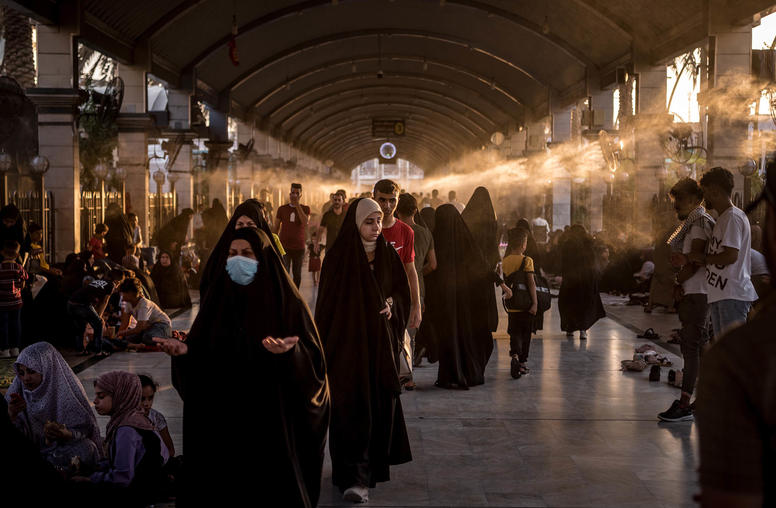 Global Health
Global Health
As the world grapples with the coronavirus pandemic, the intersection between public health and peacebuilding has never been clearer. Without strong, reliable health systems, fragile and conflict-affected states and regions often struggle to build sustainable peace—and the absence of adequate health care has been shown to drive violent extremism, fostering recurring cycles of conflict. USIP provides incisive analysis on the juncture of global health, peace and conflict, particularly as they pertain to the COVID-19 pandemic.
Featured Publications

PEPFAR’s Profound Legacy 20 Years On
This year marks the 20th anniversary of the President’s Emergency Plan for Aids Relief (PEPFAR), the George W. Bush administration’s landmark global health initiative. When Bush announced the initiative during his 2003 State of the Union address, approximately 30 million Africans were infected with HIV/AIDs and had almost no access to treatment. Twenty years later, PEPFAR is estimated to have saved 25 million lives and is credited for helping turn the tide on the global HIV pandemic.

Can Arab States Bounce Back from COVID and Climates Crises?
More than two years into the pandemic, Arab states continue to struggle with the economic and social impacts of COVID-19. Meanwhile, climate change is devastating the region — and its governments are ill-equipped to address massive problems like water scarcity and scorching temperatures. Even before COVID, much of the region was wracked by conflict, embroiled in social tension, suffering from lagging economies and witnessing growing disquiet over the unrealized aspirations of the Arab uprisings. These challenges are detailed in the U.N. Development Programme’s recently released 2022 Arab Human Development Report, which also lays out a path for an “inclusive and resilient recovery.”

Event Extra: Rethinking War Amid the Dire Global Food Crisis
Russia’s war in Ukraine has deepened a global food crisis that has left hundreds of millions facing acute hunger. Beyond the humanitarian challenges this crisis presents, it could stoke violence and conflict in fragile regions. U.N. World Food Program Chief Economist Arif Husain discusses the state of global hunger, why it’s vital that we rethink our response to conflict and what can be done in the immediate to stave off the worst.
Current Projects

Religious and Psychosocial Support for Displaced Trauma Survivors
Since spring 2021, USIP has been identifying best practices in psychosocial support to better facilitate collaboration and cooperation between religious actors and mental health professionals who provide services to conflict-affected communities, including trauma-affected displaced persons. This thematic area of work focused initially on Latin America as a pilot region and has since expanded to the Asia and European contexts — offering practical and evidence-based recommendations to relevant stakeholders.

Conflict Prevention and Fragility Working Group
The Conflict Prevention and Fragility Working Group develops timely, policy-relevant analysis at the intersection of the global response to COVID-19 and conflict prevention, identifying practical policy solutions for embedding a fragility lens into the global pandemic response. Building on the findings of the Task Force on Extremism in Fragile States and the Global Fragility Act (GFA), this group of experts includes thought-leaders with a wide-range of experience and expertise—from advocates to academics to frontline peacebuilders.